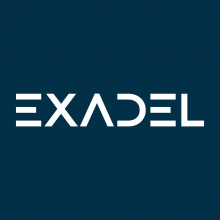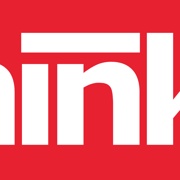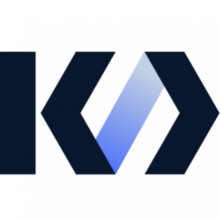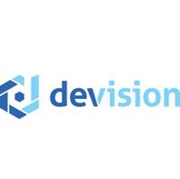
There are 11 Companies in Bulgaria
that provide Go development Services!
Bulgaria has long been recognized for having a strong tech industry and, during the past few years, has become one of the top software development hubs. Its geographical proximity to Western Europe and cultural similarities with the US and Western European countries, the availability of technically diverse, highly-skilled, and multi-lingual talent, the affordable labor cost, and favorable taxation are among the main advantages of the country.
Discover Top IT Companies in Bulgaria specialized in Go and other related services. Find the best IT service providers for your projects.
Go, also known as Golang, is an open-source programming language created by Google. It is designed for simplicity, efficiency, and concurrency, making it a versatile choice for building a wide range of applications, from web services to system software.
Handpicked companies • No obligation to hire • 100% risk-free
Featured Companies in Bulgaria
This month, the following Go development companies managed to provide an outstanding service and support. It's worth taking a look.
Bulcode builds high-performing teams to deliver bespoke software, AI, and cloud solutions that help businesses scale and innovate efficiently.
Explore Top Go development Companies in Bulgaria
Trusted PHP web development partner for startups and established businesses.

Public Cloud Group (PCG) Verified Company
Blagoevgrad, Bulgaria Head office in: Germany
We're your trusted partner backed by certified expertise. We empower European businesses in developing and growing their cloud strategy.
We are software developers specialized in enterprise software, e-commerce and cloud technologies.
Stanga1 is a software engineering company propelling digital transformation, excelling in custom solutions and swift deployment of expert teams
Cosense: Your Outsourcing Partner for Business Excellence.
Custom software, web and mobile application development using automated delivery and testing processes and an agile approach.
Filter Go development Companies in Bulgaria by Cities
Find the right tech company near you or from a specific city. Some of the best companies might be located in smaller cities.
Find more Go development companies around the world
TechBehemoths is the world's most advanced and user-friendly platform to match IT Companies with real clients without hustle.
The ICT Industry in Bulgaria: General Profile
Bulgaria has long been recognized for having a strong tech industry, and during the past few years has become one of the top software development hubs. Its geographical proximity to Western Europe and cultural similarities with the US and Western European countries, the availability of technically diverse, highly-skilled, and multi-lingual talent, the affordable labor cost, and favorable taxation are among the main advantages of the country.
With heavy traditions in IT and mathematics that could be traced back to the communist times, Bulgarians have strong technical knowledge and are one of the best-performing developers in Europe, as stated in the European Innovative Scoreboard 2025. They rank 26th in the overall chart and occupy top positions in major technologies such as Design Applications (#3) and Trademark applications (#3).
Why Should You Work With a Bulgarian IT Company?
Among the multi-national organizations that have already discovered the advantages of the country and built their operational and development centers in Bulgaria are companies like HP, SAP, Microsoft, VMware, and others. Currently, the IT sector in Bulgaria consists of more than 65,000 full-time employees (excluding freelancing professionals) according to the National Social Security Institute (NSSI).
Another reason for choosing a Bulgarian IT company compared to other countries in Europe is because one of the best price/quality ratios on the market. Bulgaria is known for its competitive labor costs compared to other EU countries, which translates into more affordable rates for IT services such as software development. The local IT companies have access to a talented pool of professionals with strong technical skills, problem-solving abilities, and proficiency in English. Also, they have a reputation for being adaptable and versatile, allowing them to work effectively on a wide range of projects and technologies.
As a result of the well-functioning education system and the rising popularity of privet educational organizations, this number is continuously increasing, making Bulgaria’s system very well suited to match the IT business needs.
At the same time, what makes Bulgaria attractive from an ICT perspective is the skilled workforce, EU membership, competitive labor costs, low corporate taxes, and a growing startup ecosystem.
What to Pay Attention to When Working With a Bulgarian IT Company?
Even though Bulgaria has a developing IT infrastructure, there are several indicators that make potential clients give second thoughts when working with Bulgarian IT companies. Among them are high piracy rates, a lack of cybersecurity infrastructure, and lower-than-average service quality compared to Western European countries.
At the same time, the other two main topics you should be aware of are talent retention and choosing the right vendor.
Talent retention can be a challenge for the Bulgarian IT industry, with skilled professionals sometimes attracted to opportunities in other European countries. To mitigate this risk, ensure that the local IT company you work with has a strong team and a track record of maintaining a stable workforce. Many local IT companies are offering their services. It is crucial to perform thorough research and due diligence when selecting a vendor, considering factors such as experience, expertise, client testimonials, and portfolio of work.
How Reliable Are Bulgarian IT Companies
The country has built a reputation as an attractive IT destination for developing software, establishing near-shore centers, and outsourcing business processes. With its strategic location and the steady growth of its economic and demographic indicators, the country has turned into a preferred development destination.
How the Bulgarian IT Industry Relates to the Neighboring Countries
Having Romania and Greece as the main regional competitors, Bulgaria’s IT industry is positioned somewhere between those two countries in international rankings. While Romania probably has more capacities in developing web and software solutions for the foreign market due to a long-term investment in IT education and a different business model, Bulgaria ranks better than Greece in some IT branches, such as BPO and Java programming.
Also, the IT industry in Bulgaria has experienced significant growth over the past decade. An interesting fact is that the industry has exceeded the Country’s GDP Levels from 25 years ago. Compared to neighboring countries such as Romania, Serbia, and North Macedonia, the Bulgarian IT industry performs competitively. Bulgaria's competitive labor costs, skilled workforce, and supportive business environment make it an attractive alternative for clients and investors seeking opportunities in the region.
The Bulgarian Business Environment From an ICT Perspective
Deyan Denchev, the founder of Bulgarian Lexis Solutions, appreciates the national business environment as being dynamic and rapidly growing, especially since the country joined the European Union in 2007. On this basis, Bulgaria is becoming a regional hub for technology startups and outsourcing services. The local ICT industry is driven by a strong pool of software developers, engineers, and digital professionals, and the country is home to a growing number of technology parks and incubators that nurture startups and innovative companies.
At the same time, the business climate for opening a new IT company as a local entrepreneur in Bulgaria is generally favorable. There are multiple local investment companies like LaunchHub, Eleven, and Sofia Angels Ventures, which you can easily reach directly or through the local acceleration programs and network events.
SAP, SiteGround & Others Dominate the Bulgarian ICT Stage
At the same time, several prominent IT companies are operating in Bulgaria, both local and international, that have made a significant impact on the country's IT landscape, like:
- Telerik (Acquired by Progress in 2014) - a leading provider of application development tools and services for web, mobile, and desktop platforms.
- VMWare - a global leader in virtualization and cloud infrastructure solutions - SAP - a market leader in enterprise application software.
- SiteGround - a leading web-hosting company with its headquarters in Bulgaria.
The Bulgarian Government Programs Supporting the ICT Development
Governmental institutions in Bulgaria encourage the development of the IT sector through a variety of policies, initiatives, and support measures, like investment in infrastructure. The Bulgarian government invests in digital infrastructure development to improve internet connectivity and create a more conducive environment for IT businesses. This includes initiatives to expand broadband access, enhance data center capacities, and promote the development of smart city solutions.
Also, the creation of Tech Park Sofia and INSAIT - Institute for Computer Science, Artificial Intelligence, and Technology are two great examples of governmental support of the IT sector. Another way of encouraging the IT sector is through access to EU funds and the creation of a more business-friendly regulatory environment for IT companies.
Sofia & Plovdiv - The Leading Tech Bulgarian Urbs
The two best cities in Bulgaria for establishing an IT business are Sofia and Plovdiv. Both cities have unique advantages that make them attractive locations for IT companies and entrepreneurs. As the capital and largest city of Bulgaria, Sofia is the country's primary economic and business hub. It offers several advantages for IT businesses, like a skilled workforce, a startup ecosystem, international presence, and connectivity. Plovdiv, the second-largest city in Bulgaria, is also emerging as an attractive destination for IT businesses due to: - Educational institutions like Plovdiv University and the Technical University, - Technology parks like Plovdiv Tech Park, - Lower operating costs - Compared to Sofia, Plovdiv generally offers lower costs for office spaces and living expenses.
The Bulgarian IT Talent Pool - Skilled and Attractive
According to Deyan Dunchev, the local talent pool in Bulgaria is characterized by well-educated and highly skilled individuals, particularly in the fields of computer science, engineering, and information technology. Bulgarian universities and educational institutions offer strong programs in STEM (Science, Technology, Engineering, and Mathematics) disciplines, which contribute to the development of a qualified workforce in the IT sector. The IT industry is seen as an attractive career choice for many young professionals due to the high demand, competitive salaries, career growth, and global and entrepreneurship opportunities.
What is Go and what are its benefits for your projects?
Go, also known as Golang, is an open-source programming language created by Google. It is designed for simplicity, efficiency, and concurrency, making it a versatile choice for building a wide range of applications, from web services to system software.
More than 363 verified IT companies leverage Go in their development projects. These companies range from startups to tech giants like Google, Uber, and Dropbox. They appreciate Go's speed, reliability, and ease of use for building scalable and performant software.
Go service providers rely on various tools and technologies to enhance their development process. Some commonly used tools include the Go compiler, which transforms Go code into executable binaries, and the Go standard library, which offers essential packages for building applications. In terms of deployment, containerization technologies like Docker are frequently used to package Go applications for consistency and portability.
You may be wondering, how is Go Different from C, Rust, and Java. So, below we’ll try to show you more about the differences that exist between them:
-
Go vs. C: While both Go and C are low-level languages, Go offers modern features like garbage collection and memory safety, which simplify programming. Go is also more concise and expressive than C, making it easier to read and maintain. But if you think your business needs companies that also specialize in C, you can find them on this page
-
Go vs. Rust: Rust emphasizes memory safety and control without sacrificing performance. While Go offers simplicity and readability, Rust provides fine-grained control over memory and is suitable for systems programming with a focus on safety.
-
Go vs. Java: Java is a high-level language often used for building enterprise-level applications. It relies on a virtual machine (JVM) and is known for platform independence. Go, on the other hand, compiles native code, offering better performance and efficiency for certain use cases.
Languages related to Go in terms of use cases and features include Python, Ruby, and Node.js. These languages, like Go, are suitable for building web services and backend applications and are known for their developer-friendly features. If you need these programming languages in addition or instead of Go, just click on their corresponding words above to find verified vendors providing those services.
When selecting IT companies that use Go for your project, consider factors such as the company's experience with Go, their portfolio of past projects, client references, and their understanding of your specific project requirements. Look for companies that align with your project's complexity, scalability needs, and budget.
Go service providers are essential for various project types, including:
-
Web Services: Go is well-suited for building RESTful APIs and microservices due to its excellent performance and simplicity.
-
Networking Applications: Go's concurrency support makes it ideal for developing network-related software such as servers and proxies.
-
Cloud Applications: Go's efficiency and speed are valuable for building cloud-native applications and serverless functions.
-
System Software: Go can be used for developing system utilities, command-line tools, and operating system components.
Go is a versatile language, and its speed, simplicity, and efficient concurrency model make it suitable for a wide range of projects, making it an excellent choice for modern software development.









